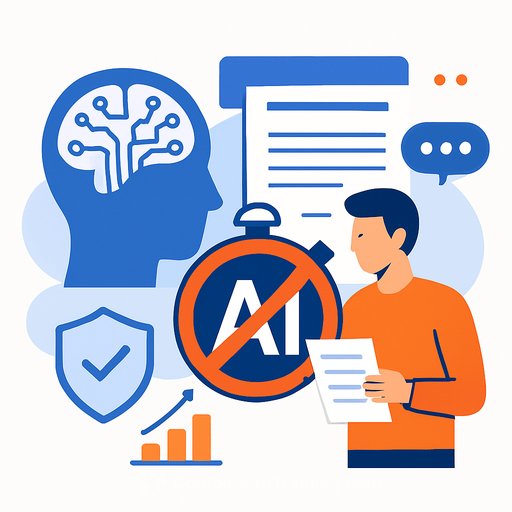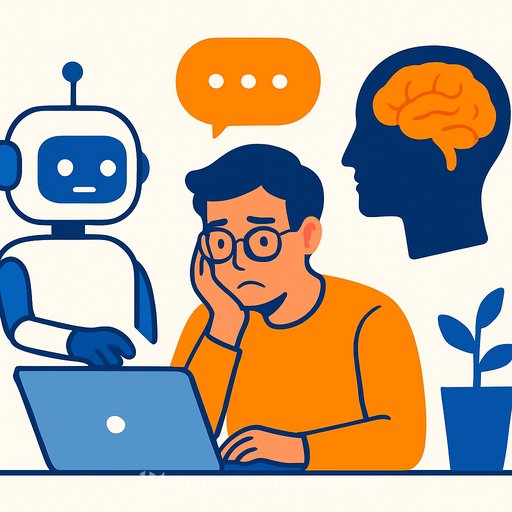Writers: You Can Finally Tell ChatGPT to Stop Using Em Dashes
Worried that em dashes make your draft look like it came from a bot? You're not alone. Enough writers complained that OpenAI has updated ChatGPT to honor a simple request: stop using them.
OpenAI's CEO called it a "small-but-happy win," and the ChatGPT team confirmed that if you set it in Custom Instructions, the model now respects it. For working writers, that's one less headache.
What changed
- ChatGPT now follows a clear instruction to avoid em dashes.
- You can set it once in Custom Instructions and it should stick.
- Path: Settings > Personalization > Custom Instructions.
Some users still report odd behavior, like the model promising to use "short hyphens" instead. If that happens, tighten your instruction and correct it once in the chat. It usually settles.
Why this matters to writers
Over the past year, em dashes started showing up far more often in ChatGPT outputs. One report noted that usage jumped from less than one in ten replies to more than half by mid-2025. That put real writers in a bind, since a normal punctuation choice started to look like an AI tell.
Many writers either avoided em dashes entirely or spent extra time editing them out. Now you can set a default that matches your style guide and protect your voice.
Why ChatGPT leaned on em dashes in the first place
OpenAI hasn't given a reason. A common theory is training data. Public-domain 19th-century books use em dashes a lot, and those texts are widely used for training because they're lawsuit-safe. Another theory points to Medium posts, where em dashes are common and also widely scraped.
How to turn off em dashes in your outputs
- Go to Settings > Personalization > Custom Instructions.
- In "How would you like ChatGPT to respond," add a clear rule:
- "Do not use em dashes. Use commas, periods, or semicolons instead."
- "If you need a pause, prefer commas. If emphasis is needed, use a colon."
- Add style guardrails that reinforce the rule:
- "Follow AP or Chicago punctuation conventions with no em dashes."
- "Keep sentences varied in length and avoid overly enthusiastic tone."
- Save, then test with a short prompt. If an em dash appears, correct it once and say "Follow my Custom Instructions."
Beyond punctuation: make AI text look like your writing
Detection isn't just about dashes. Research shows models can mimic structure-like sentence length-but often miss believable emotional tone, leaning too positive on platforms like X or Bluesky. You can close that gap with a few habits.
- State a specific tone: "measured and slightly skeptical," "dry and analytical," or "conversational, no hype."
- Set sentence rhythm: "Mix short and medium sentences. Limit long sentences."
- Bias for specifics: add numbers, dates, sources, and constraints.
- Use your own phrasing habits: favorite transitions, preferred verbs, banned words.
- Add a personal pass: one quick edit for cadence, one for fact checks, one for house style.
Quick template you can paste into Custom Instructions
- What would you like ChatGPT to know?
"I'm a professional writer. I follow [AP/Chicago/house style]. I avoid em dashes, filler, and generic enthusiasm." - How would you like ChatGPT to respond?
"Do not use em dashes. Use commas, periods, semicolons, or colons. Mix short and medium sentences. Keep tone [measured/skeptical/neutral]. Cite concrete facts. If unsure, ask a clarifying question instead of guessing."
Will this fix stick?
It should for most users, but models can still slip. If it does, restate the rule, correct the output once, and save your instruction again. For client work, add a final search-and-replace pass in your editor to catch any strays.
Helpful next steps
- Create a style profile per client and save it as a preset in your notes app.
- Build a short QA checklist: punctuation rules, tone, claims with sources, and banned phrases.
- Schedule a quarterly update to your Custom Instructions as your style evolves.
If you want more prompts, style guides, and ChatGPT setups for working writers, explore our resources at Complete AI Training.
Disclosure
Ziff Davis, PCMag's parent company, filed a lawsuit against OpenAI in April 2025, alleging it infringed Ziff Davis copyrights in training and operating its AI systems.
Your membership also unlocks:





